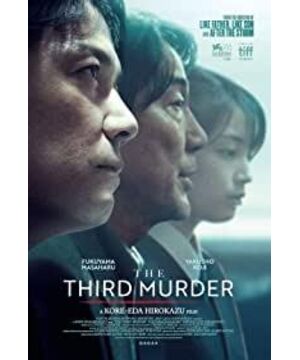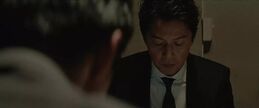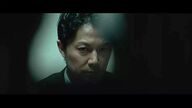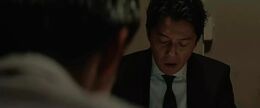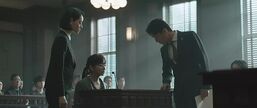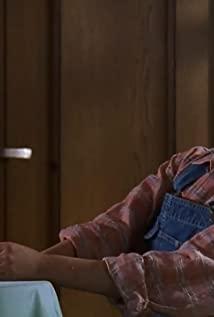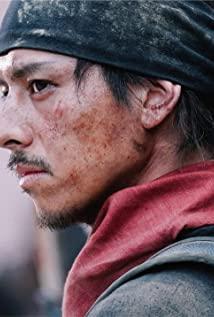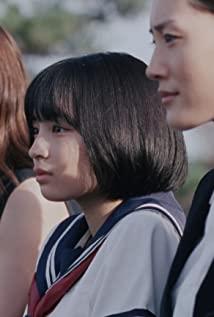It was Hirokazu Koreeda who never wanted to make it clear who the culprit was, and I believe he didn't know either, or he didn't care who the culprit was. The fledgling female prosecutor believed in her so-called truth and refuted the defense lawyer to cover up the criminal, while the old lawyer scoffed at the prosecutor's point of view, but didn't want to talk too much, just simply said: "Positions are different", yes, different positions may have different truths. No one is God. We can only restore the existing evidence and see the truth that we believe in. It is also good that the defense can try its best to It may not be our intention to think about a defense plan and obtain a suitable verdict for the perpetrator, but the good thing is that at least we can get closer to the truth. If we go on talking, the defense will discuss the legitimacy of defending against the state's violent machine. There is no need, and this is not what Hirokazu Koreeda wants to talk about.
Is what the girl said true? I don't know, is what Sanyu said true? I don't know, are we really closer to the truth in the reversal, almost Rashomon-like narrative? I don't know, but fortunately it doesn't really matter...
The confused and mid-life crisis lawyer is a failed father, and he doesn't get along well with his daughter. That's why he is moved by what Sanyu said in order to protect the little girl, and even tried to believe that he didn't when Sanyu turned the confession. Murder, and even after struggling to persuade himself to believe that the murderer was Sanyu, he still looked for a motive for Sanyu's confession-in order to prevent the little girl from telling that terrible story in court, is this another willingness?
The little girl was sexually assaulted by her biological father, and her mother kept silent. When she met Sanyu, a father-like character, they had a snowball fight together. She revealed her secrets with the expectation of letting Sanyu help kill her father. Does she think Sanyu killed her? Died her father to help her? Is this also wishful thinking?
There is no answer to the above questions, because the answer varies from person to person. If you can’t put it in the container of Sanyu, the container can’t determine the content. What you can do is to carry and further self-torture, so in the end, lawyers can only stand alone at the crossroads. confused.
It is Hirokazu-eda’s film that I feel is too interactive. It is a test paper without standard answers. What you can see is what it is. It is very similar to the original author’s reading comprehension. The answer is not unique, it must be Going deep into the correct answers and ideas is not beautiful.
It was Hirokazu Koreeda who deliberately left a lot of plots to confuse the perception, for example, Misumi likes birds, can honestly pay the rent ahead of time, and have a happy snowball fight with the little girl, but at the same time it is Hirokazu Koreeda who uses the mouth of the old police officer to remind the audience," he said. The words are not credible.” So which part is true? It's actually quite confusing.
The little girl has a line that says, "No one in the courtroom tells the truth." I'd rather understand that she didn't tell the truth herself. Otherwise, Hirokazu-eda's accusation is too superficial and too rigid, It seems like the image of the judge with bags under his eyes who wants to close the case as soon as possible, the young lawyer who simply exaggerated and surprised the "court expenses", such criticism is too vulgar, too superficial and therefore quite cheap, and the shrew's scolding is not convincing. The same is true.
View more about The Third Murder reviews


